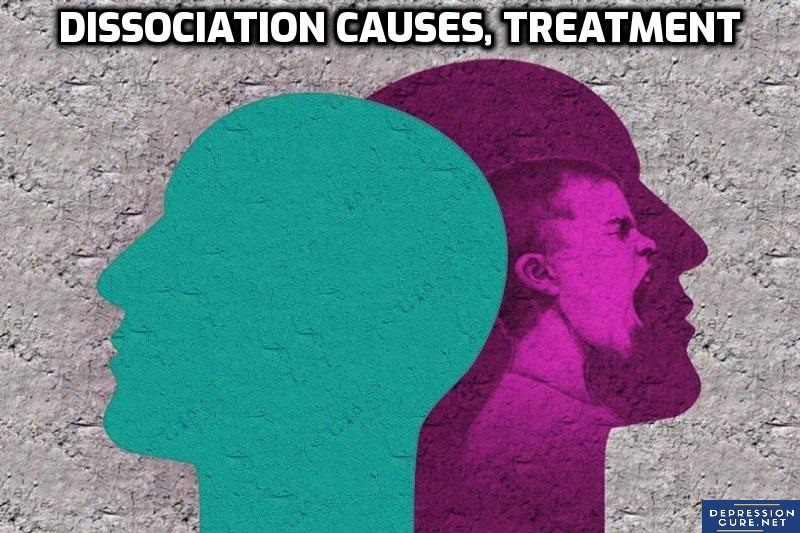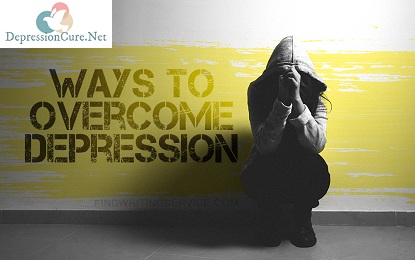Dissociation; what it is
When you feel distanced from yourself and the world around you, feel detached from your thoughts, body or feel like everything around you isn’t real, you may be experiencing a mental health state called dissociation. Everyone’s experience of dissociation is different.
Dissociation is more or less like the minds way of handling too much stress by breaking or halting such as from a trauma. It can affect your senses and how you perceive time and anything around you.
Many science experts believe it as a technique your mind uses to protect you from the full impact of the upsetting experience you previously went through.
Symptoms usually last for a short period of time from hours to a few couple of days and sometimes can take longer i.e. weeks to months. The symptoms often on their own can go, however if symptoms lasts or you dissociate for longer periods of time, it may develop into a dissociative disorder.
What are some symptoms of Dissociation?
- Finding it tough remembering information, even personal ones (Dissociative amnesia)
You are likely to;
- have breaks in your life where you remember nothing that has happened
- Be unable to recollect information even about yourself or about things that happened in your own life.
- A feeling of everything around you being unreal (Derealisation)
You are likely to;
- feel as like the world around you is unreal
- see objects in different sizes, shapes or color
- a lifeless or foggy feeling of the world
- Feeling so different from yourself (Depersonalization)
You are likely to;
- Feel as like you are watching yourself in from the outside or in a movie.
- feel like you are observing your emotions from outside of you
- feel apart from parts of your body and your emotions
- feel as if you are floating away
- Feel unsure of the boundaries between yourself and other people.
- Feeling your identity shift and change (Identity alteration)
You are likely to;
- feel a shift or change in identity
- Use different voices
- Take on different names
- Switch personality
- Having a feeling of loss of self-control to others
- act different including like a child
- Difficulty defining what kind of person you are
Causes of Dissociation
Dissociating causes can be categorized into two.
- A flashback is a sudden experience of a traumatic sensations or feelings from the past. This is called peritraumatic dissociation.
Peritraumatic dissociation can happen when you’ve been through things like:
- Physical or Sexual assault
- Combat
- Child Abuse
- Torture or capture
- Motor vehicle accidents
- Natural disasters
If you’ve been through disturbing experiences repeatedly, you are likely to get severe forms of dissociation known as dissociative disorders.
You may leave your normal consciousness, forget things, or form different personalities or identities in your mind.
Dissociated memories (resulting from amnesia or an experience of different identity states with different memories) may resurface during flashbacks.
- A trigger is anything i.e. object or event that brings about a flashback or reminds of something traumatic from the past, which can cause dissociation or other reactions.
A sight, sound, taste, smell or touch, a situation or way of moving your body could all be or become triggers.
Other causes of dissociation
Meditation. Just like daydreaming, becoming less aware of the present while you meditate is likely. Some expert in meditation has confirmed a loss in awareness of their self and body when certain mindfulness meditation is being practiced.
Certain drugs. Identity or reality loss is often experienced if you drink alcohol or take illicit drugs. Research reports that psychedelics, like psilocybin and LSD causes people who take it to lose their sense of self briefly.
Hypnosis; when you go through daydreaming or let your mind wander, you get into an “auto-hypnotic state.” You may no longer have consciousness of your body. Other types of hypnosis may put you in a more serious dissociated state.
You may use the help of a professional through therapeutic hypnotherapy to help you manage pain, anxiety, addictive behaviors, or posttraumatic stress disorder (PTSD).
Other Mental Health Conditions Related to Dissociation
Dissociation is likely to be experienced along with certain mental health disorders. Other than PTSD and schizophrenia, dissociation also results to:
- Acute stress disorder
- Personality disorder
- Affective disorders
- Obsessive-compulsive disorder
- Eating disorders
What are the Warning Signs of dissociation?
It’s possible to have dissociation and not know it. Some people keep symptoms hidden or confuse them with other things.
Common signs you or anyone one should watch out for is:
- Difficulty recalling personal details or information
- Forgetfulness about actions or uttered words
- Failed treatments or hospitalizations for mood disorders
- Substance abuse
- Frequent mood swings
- Behavioral or capability change (altered identities)
- Depression, anxiety, or panic attacks
- Suicidal or self-harm thoughts
Dissociation in children causes them to:
- Stare out the window a lot
- Seem spacey
- Have imaginary friends
- Forget they’ve said or done something
- Have learning disabilities
How dissociation is diagnosed
Normally a medical professional such as a doctor can give you a physical examination, ask about any past physical or mental health problems to easily diagnose dissociation.
It is always advisable to let them know of your social history such as if you take illicit drugs or any medication.
Blood samples or other tests to rule out an illness or other medical condition as the cause of your dissociation may be run.
Electroencephalogram (EEG), a painless test that measures brain waves, to rule out certain types of seizure disorders that can sometimes cause dissociation may also be conducted.
You are usually referred to a mental health specialist who will conduct further tests, including:
- Dissociative Experiences Scale (DES)
- Structured Clinical Interview for Dissociation
Treatment for Dissociation
Dissociation has no special or specific treatment drug. Usually treatment comprises of certain medications and proper counseling based on the causes and severity of the symptoms.
Treatment usually involves;
- Psychotherapy. A type of treatment aimed to help you find the cause of your dissociation but with helping you manage or get rid of your symptoms as the main goal.
Types of psychotherapy
- Cognitive behavioral therapy
- Hypnotherapy
- Phasic trauma treatment
- Family treatment.
- Dialectical behavioral therapy
- Eye movement desensitization and reprocessing
2. Add-on medication. Antidepressants, mood stabilizers, or other drugs to help with the anxiety or sleep problems. An Antipsychotic for dissociating with schizophrenia cases.







